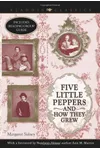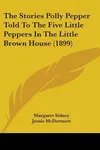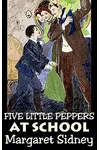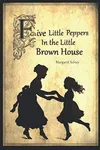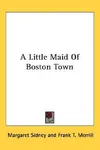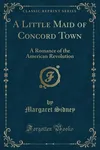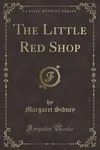Picture a spirited American storyteller who spun tales of family, resilience, and joy in a little brown house—meet Margaret Sidney! Born Harriett Mulford Stone in 1844, Sidney captured the hearts of generations with her beloved Five Little Peppers series, a cornerstone of children’s literature that radiates warmth and optimism. Her stories, brimming with wholesome values, invited young readers into a world where kindness triumphs over hardship.
With a knack for crafting relatable characters, Sidney didn’t just write books—she created a legacy that still sparkles in cozy reading nooks today. Let’s dive into the life, works, and enduring charm of this remarkable author!
The Making of Margaret Sidney
Born on June 22, 1844, in New Haven, Connecticut, Harriett Mulford Stone grew up in a cultured household, thanks to her architect father, Sidney Mason Stone. Her family’s travels through rural New England ignited her imagination, planting the seeds for her future stories. Educated at local seminaries and Miss Dutton’s School, Harriett’s love for creating imaginary worlds blossomed early, fueled by her father’s extensive library.
Her writing career kicked off in 1878, at age 34, when she began penning short stories for Wide Awake, a popular Boston children’s magazine. Under the pseudonym Margaret Sidney, her tales of the Pepper family caught fire, leading to a 12-part series request from editor Daniel Lothrop—whom she later married in 1881. This marked the start of a literary journey that would define her legacy.
Margaret Sidney’s Unforgettable Stories
Sidney’s Five Little Peppers and How They Grew (1881) introduced readers to Ben, Polly, Joel, Davie, and Phronsie, a poor but plucky family living in their cherished Little Brown House. This debut novel, an instant hit, celebrated their adventures and unwavering optimism despite poverty and challenges like illness. Its light, engaging style avoided the heavy moralizing common in era’s children’s books, making it a refreshing read.
The series grew with titles like Five Little Peppers Midway (1890), which follows the Peppers five years later, and Five Little Peppers Abroad (1902), whisking the family on European escapades. Our Davie Pepper (1916) spotlighted the compassionate Davie, showcasing Sidney’s knack for giving each character their moment to shine. Her stories blended humor, heart, and relatable struggles, cementing her as a master of family-driven narratives.
Beyond the Peppers, Sidney wrote poetry, nonfiction, and historical works like Old Concord: Her Highways and Byways (1888), reflecting her love for American history. Her versatile style and vivid settings drew young readers into worlds where love and perseverance always won.
Why Margaret Sidney Matters
Margaret Sidney’s impact on children’s literature lies in her ability to craft stories that resonate across generations. Her Five Little Peppers series offered a hopeful lens on life’s challenges, inspiring readers to value family and resilience. Unlike the didactic tales of her time, Sidney’s narratives prioritized joy and authenticity, earning her a devoted following.
Her civic contributions were equally notable. After marrying Daniel Lothrop, she helped run his publishing company and founded the Children of the American Revolution, fostering patriotism in young people. Sidney’s purchase of The Wayside, a historic home once owned by Louisa May Alcott and Nathaniel Hawthorne, underscored her commitment to literary heritage, now preserved as a National Historic Landmark.
- Born: June 22, 1844, New Haven, Connecticut
- Key Works: Five Little Peppers and How They Grew, Five Little Peppers Midway, Five Little Peppers Abroad
- Notable Achievement: Founded the Children of the American Revolution in 1895
- Died: August 2, 1924, San Francisco, California
Snag Five Little Peppers and How They Grew and dive into Margaret Sidney’s heartwarming world of family and adventure!
